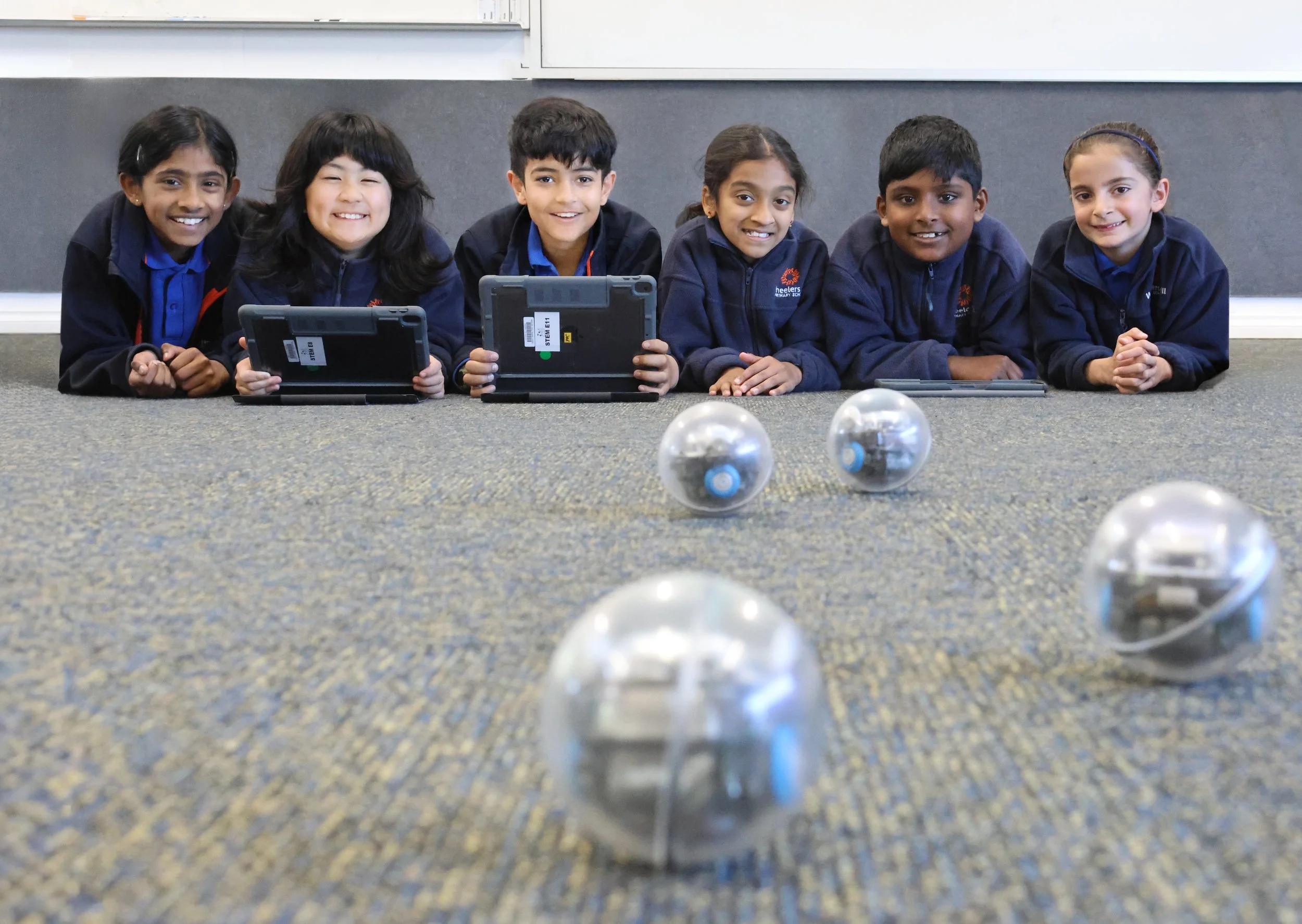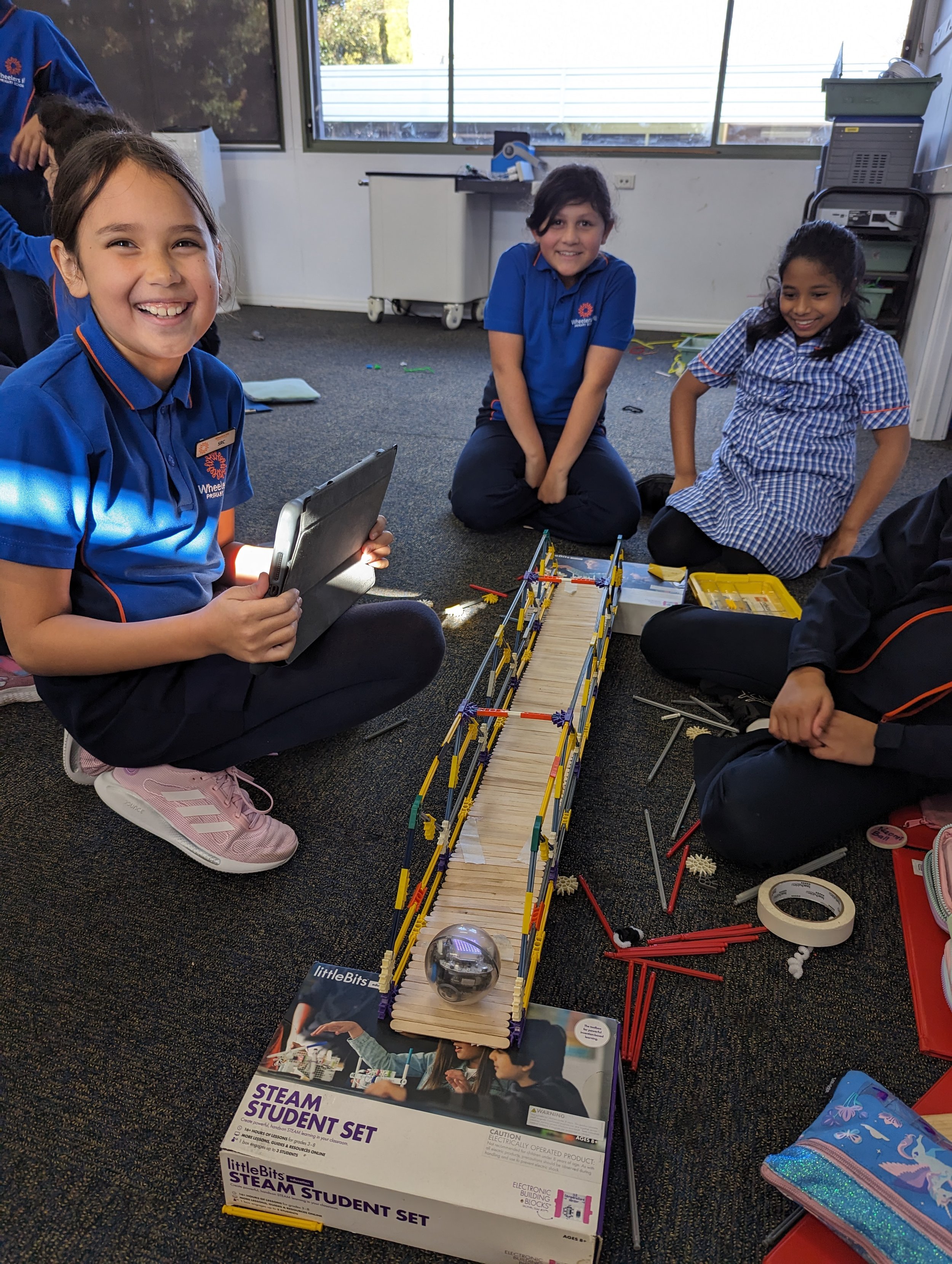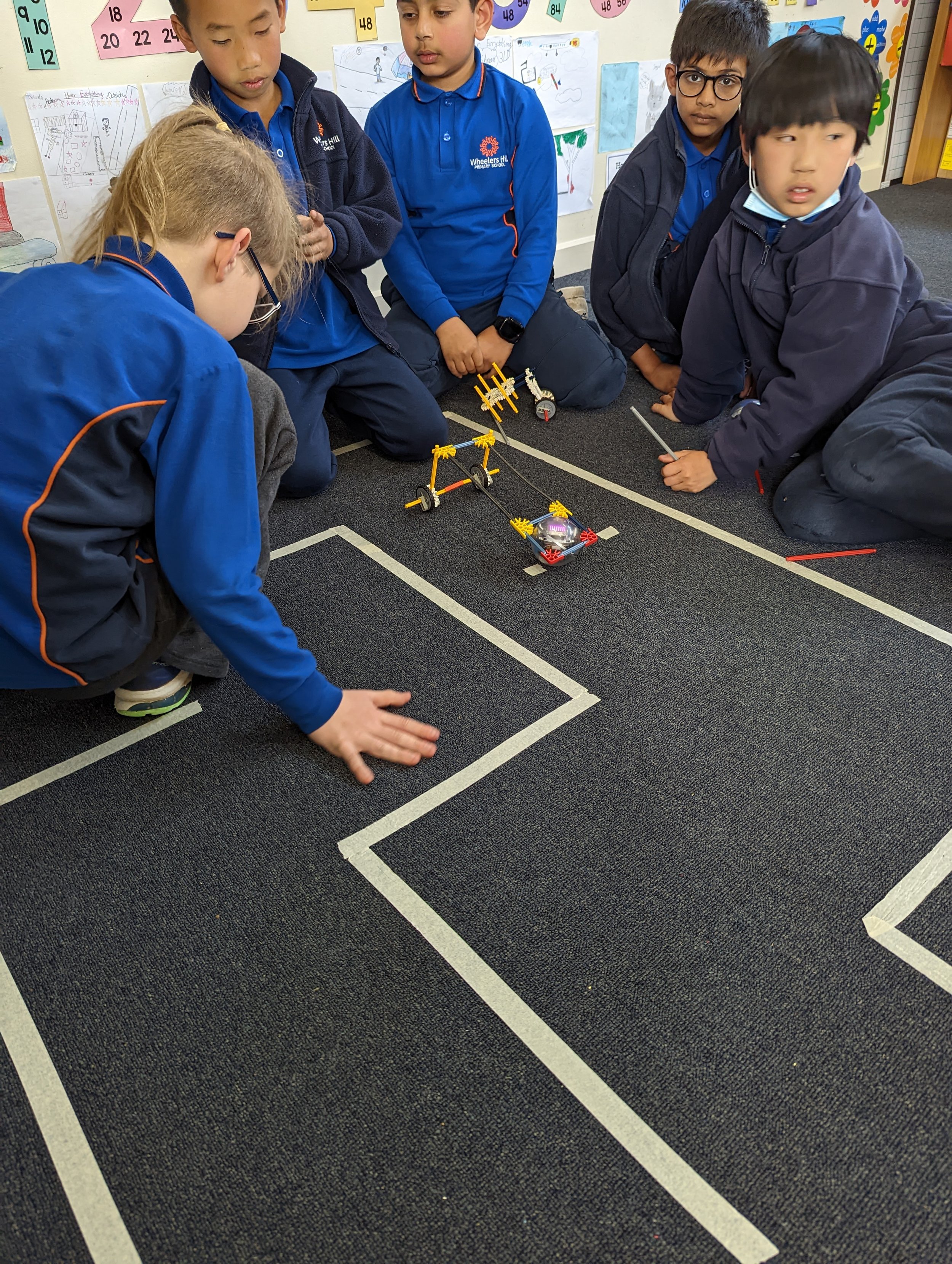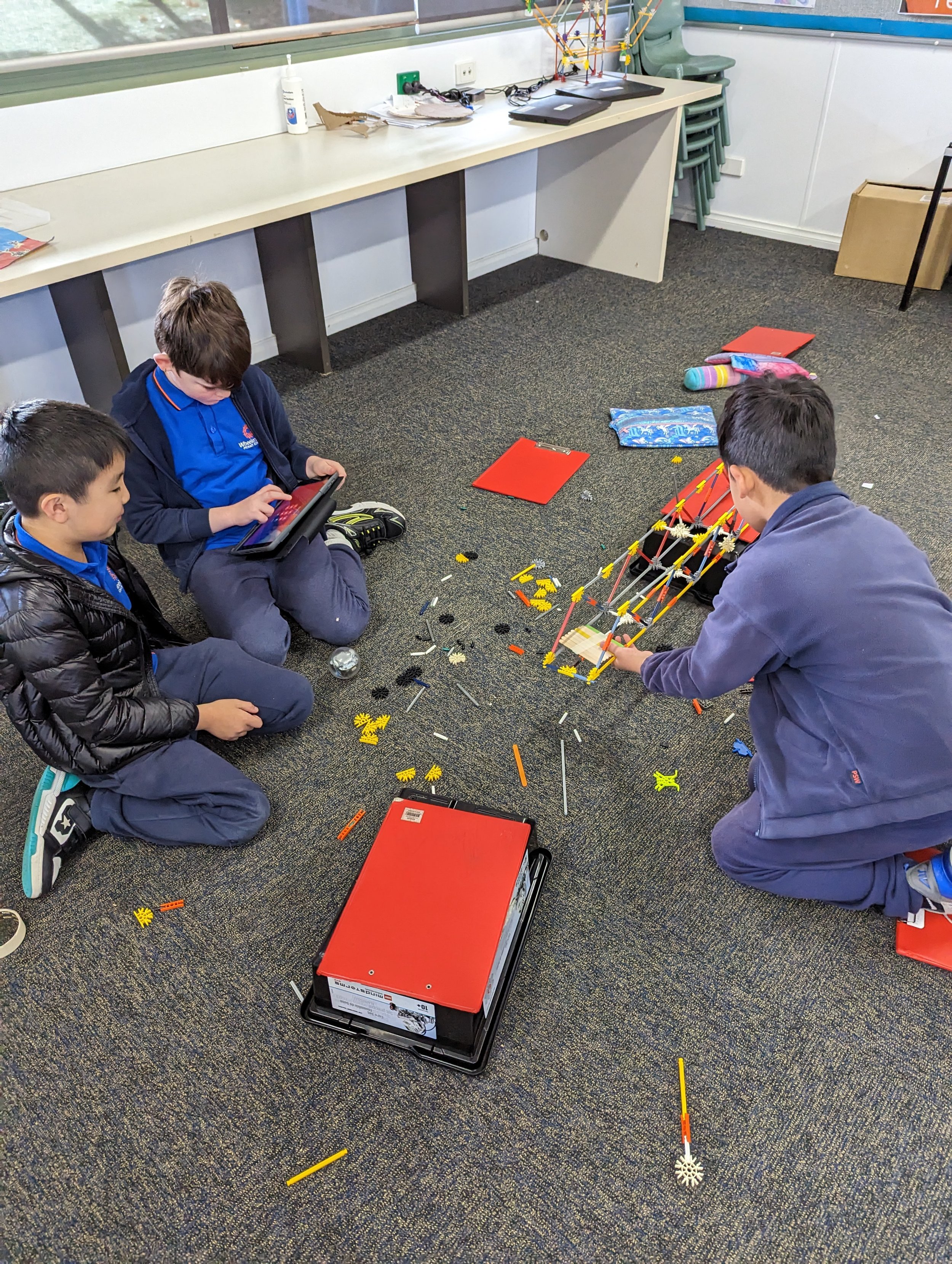Science, Technology, Engineering, the Arts and Mathematics (S.T.E.A.M.)
Introduction to S.T.E.A.M.
Wheelers Hill Primary school has a well embedded whole-school S.T.E.A.M. program designed to enrich student learning and develop computational and algorithmic thinking across the school. This program is intended to seamlessly integrate Science, Technology, Engineering the Arts and Mathematics whilst encouraging trial and error, problem solving and critical thinking skills.
The Robotics Curriculum
Our S.T.E.A.M. program is taught to all year levels and is targeted to their specific learning level. As well as providing enrichment opportunities, these sessions demonstrate how robots are used in today's society to help people solve challenges, ensure quality and refine processes. Students will build simple robots and explore how they can develop algorithms and programs that use conditions, sensor data and mathematics to navigate and respond to environments.
Junior School - Primo Cubetto
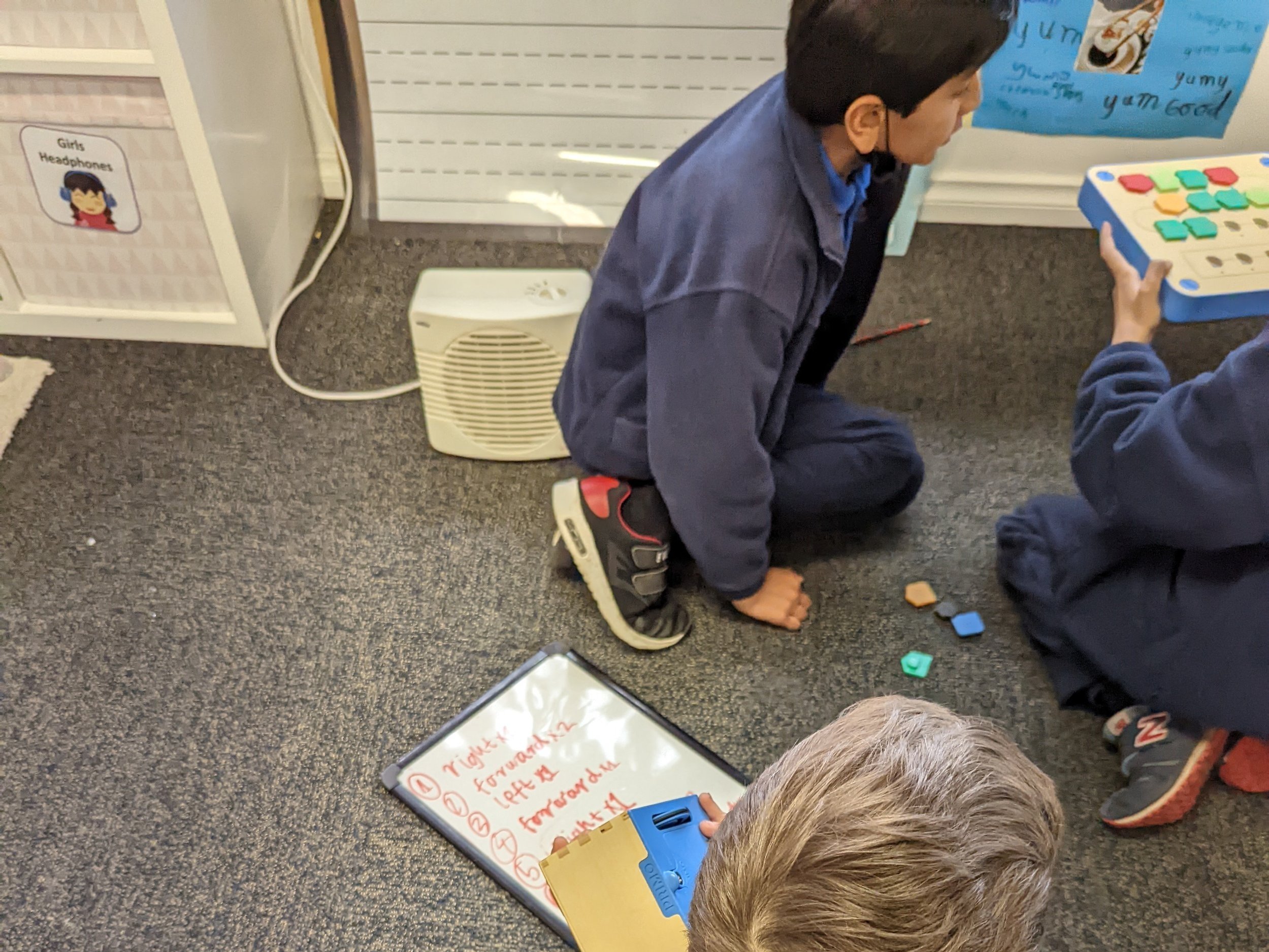

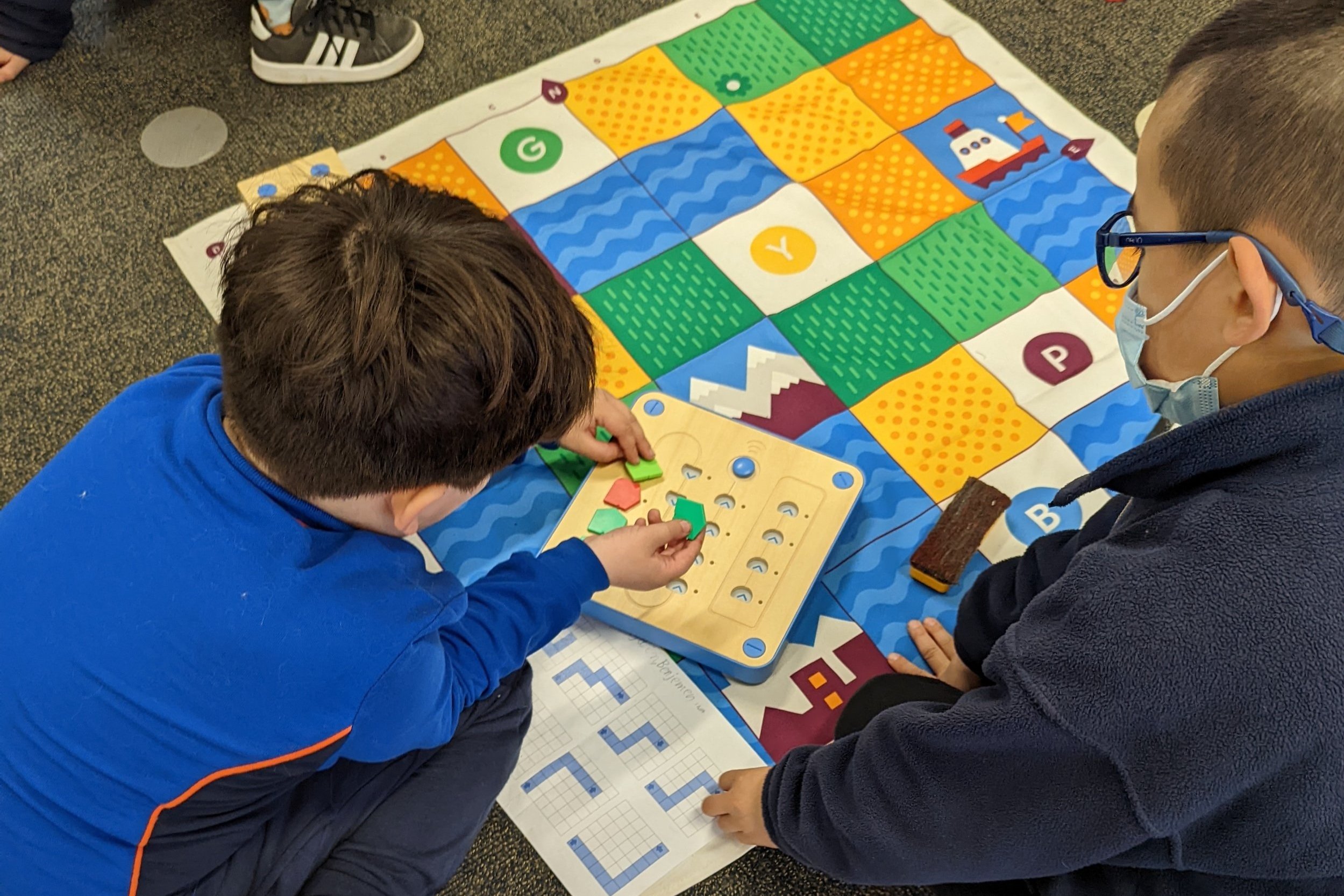
Foundation (Prep) Year - Developing Algorithms
Guided programming of 'human robots'
Writing instructions
Introduction to creating algorithms
Year 1 - Developing Algorithms
Programming 'human robots'
Understanding how computers interpret instructions
More complex algorithmic logic (including repetition, functions and debugging)
Middle School - Sphero Bolt
Year 2
Drawing instructions for a robot
Problem solving
Introduction to block programming
Year 3
Using repetition in algorithms
Understanding technical elements of robots
Exploring sensors
Following flowcharts with conditional logic
Year 4
Real-world problem-based application of STEM skills
Creating a series of instructions with iterations
Problem solving to navigate environments
Creating simple machines and engineering solutions
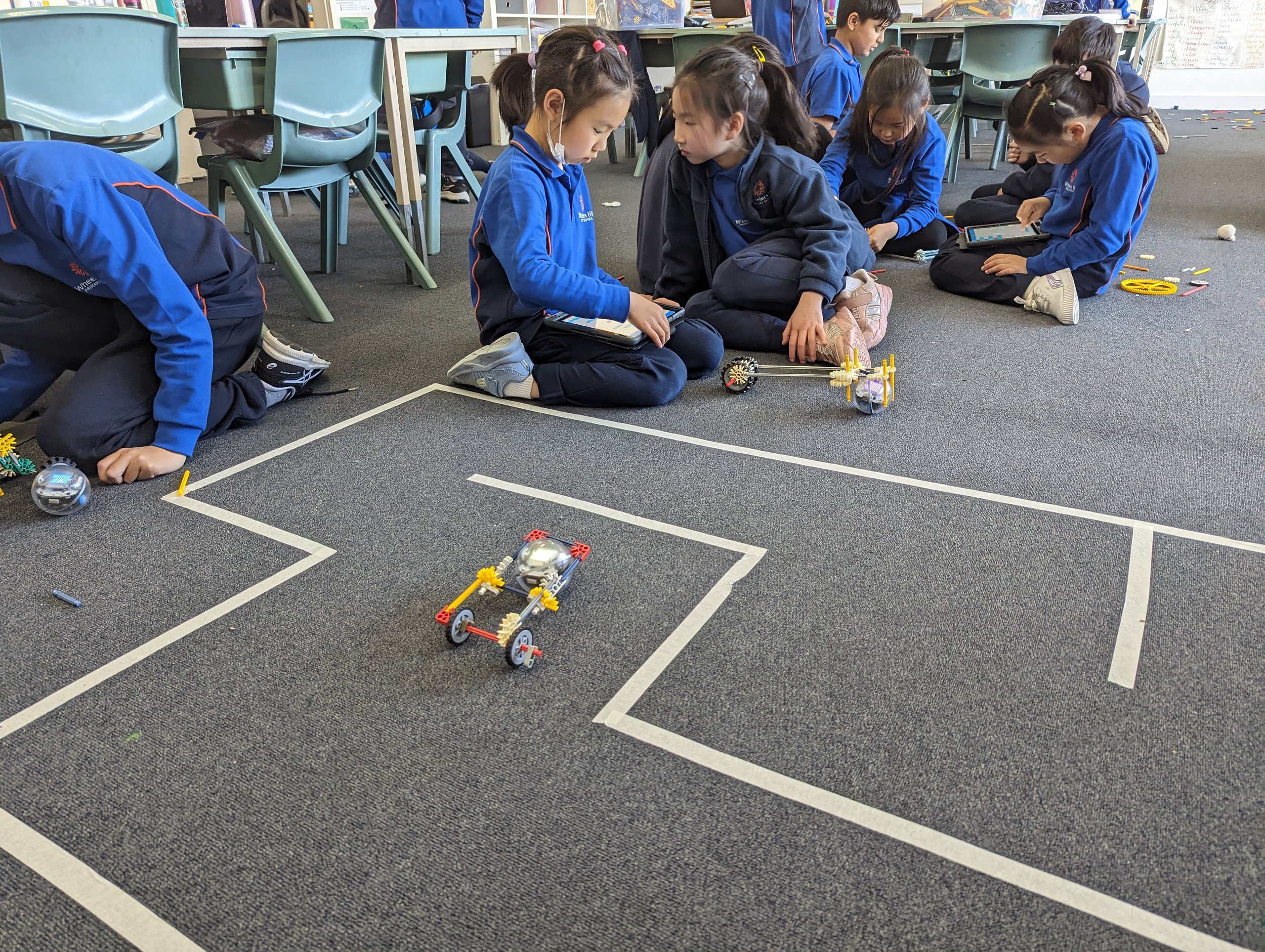
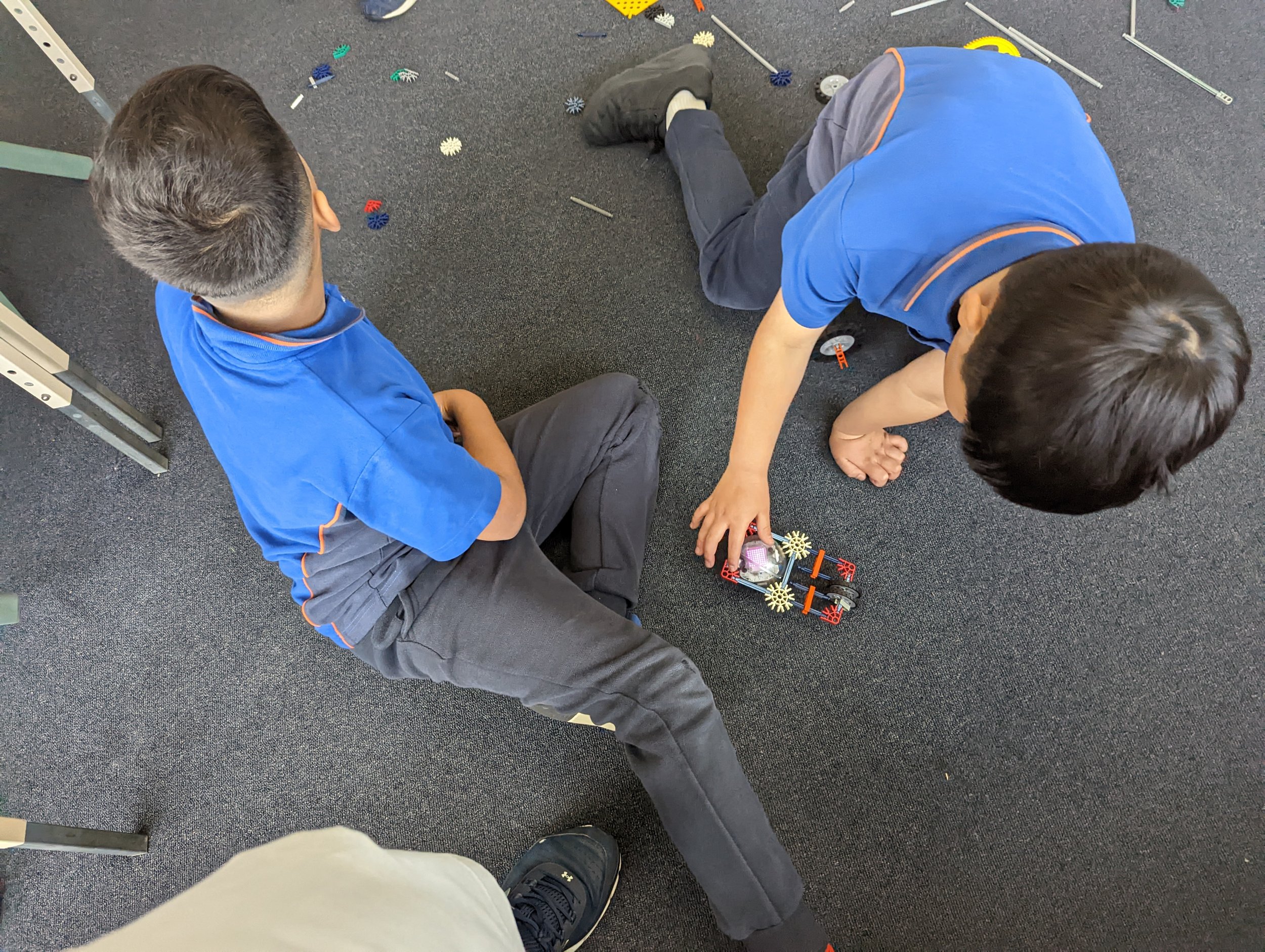
Senior School - Lego Mindstorms EV3
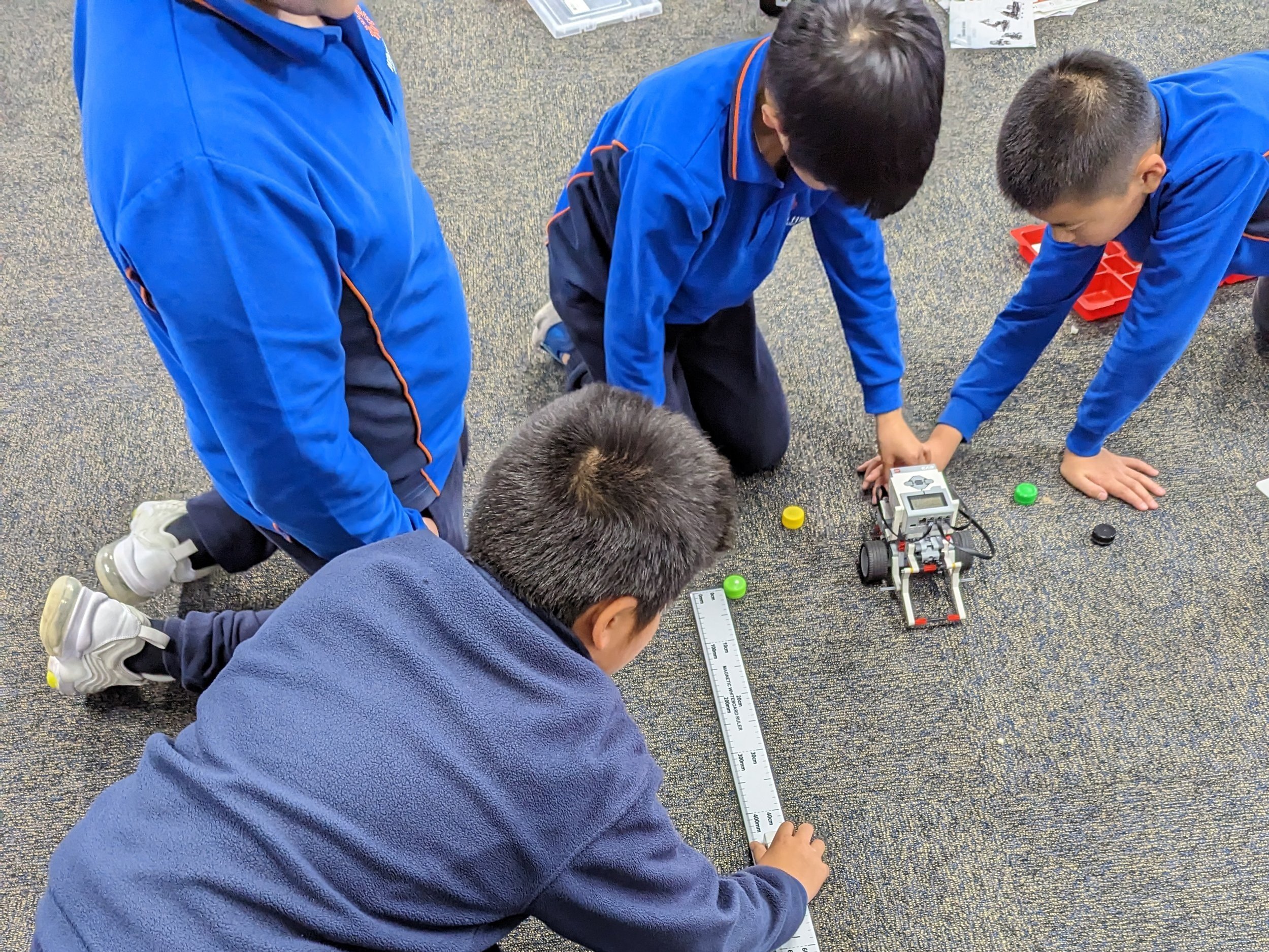
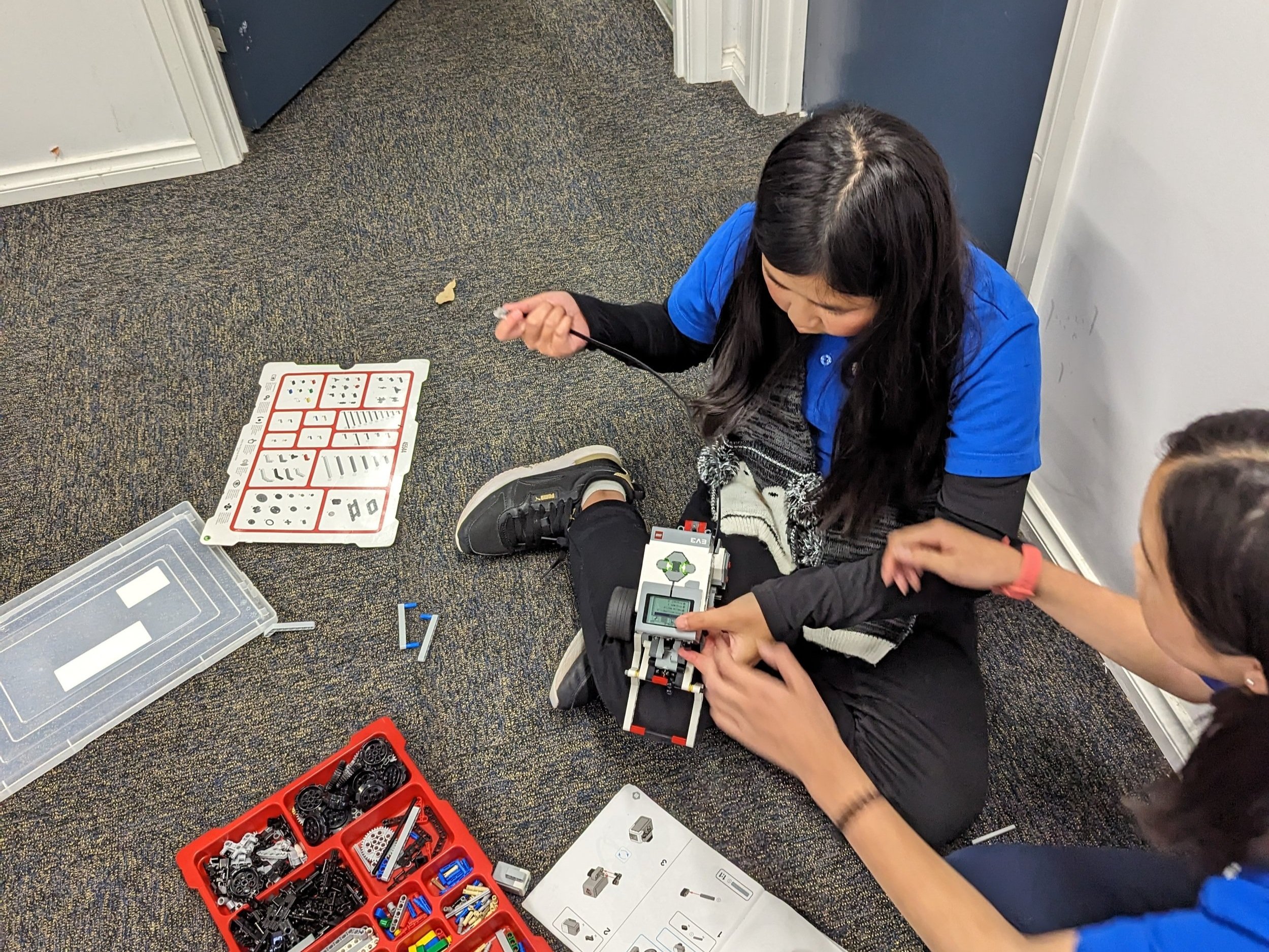
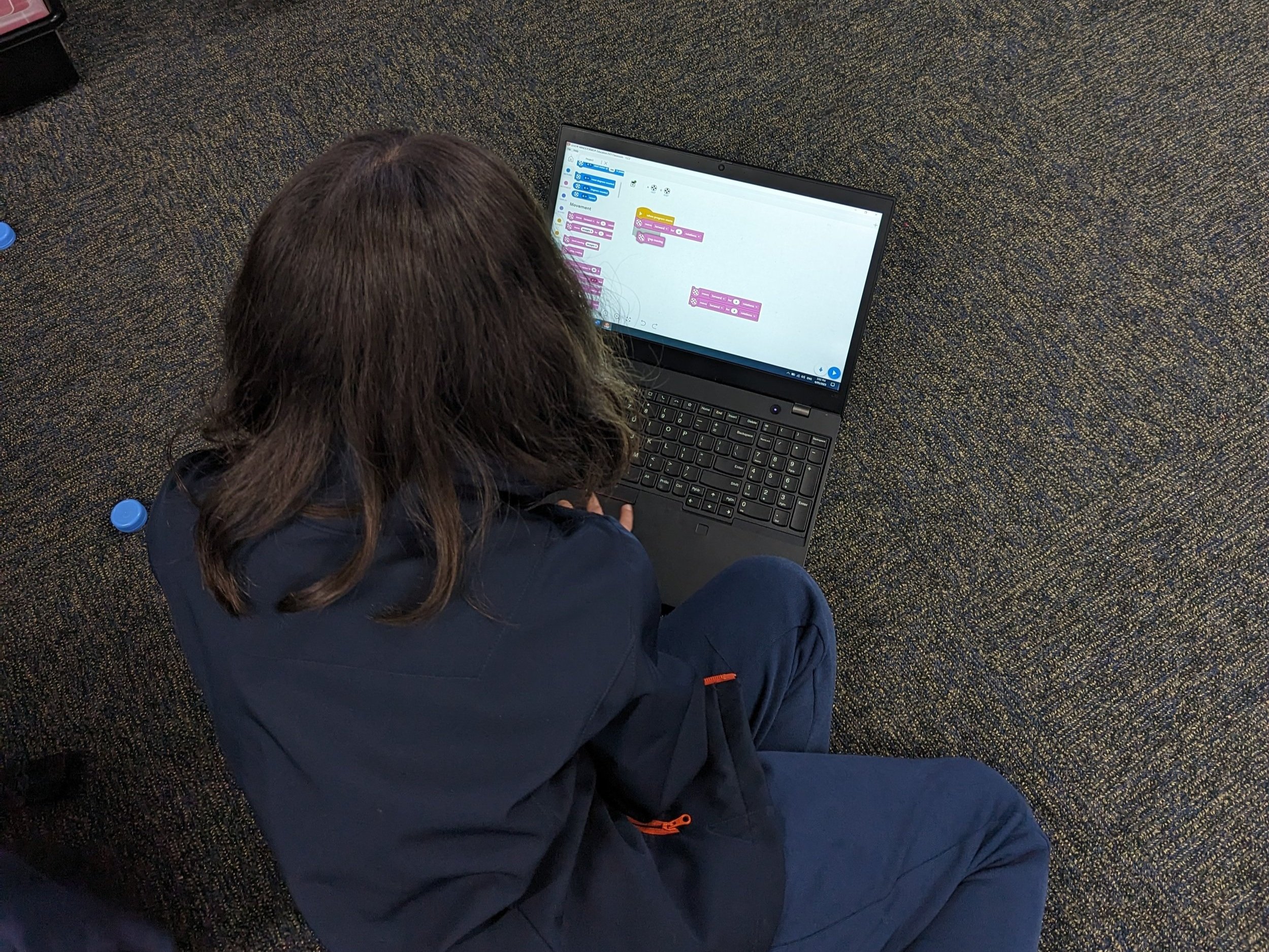

Year 5
Sequencing instructions
Using mathematical operators in programming
Introduction to sensors (Gyroscopes, touch and ultrasonic sensors)
Exploring basic conditional programming
Directed development of real-world robotic solutions
Year 6
Following the Engineering Design Process to plan and create solutions
Introduction to advanced gear systems and colour sensors
Scenario-based challenges
Replicating real-world robotic solutions
Problem-based learning

